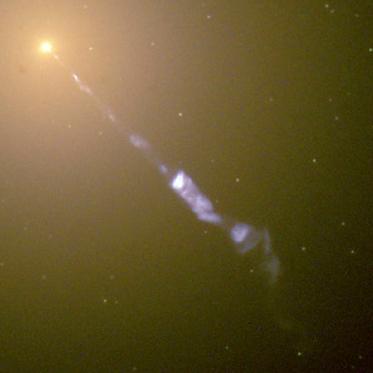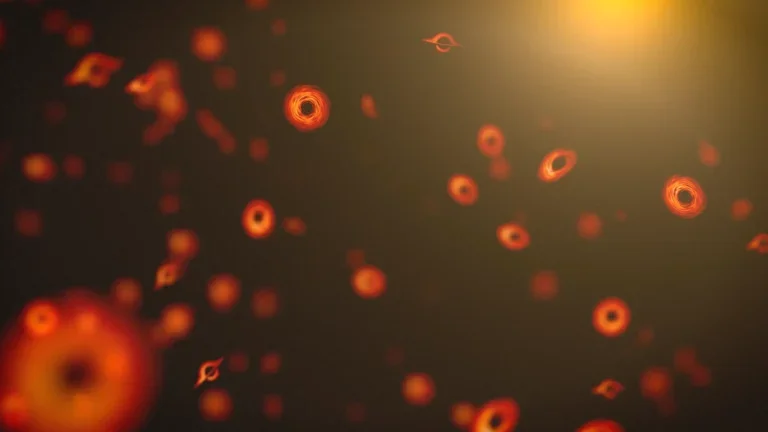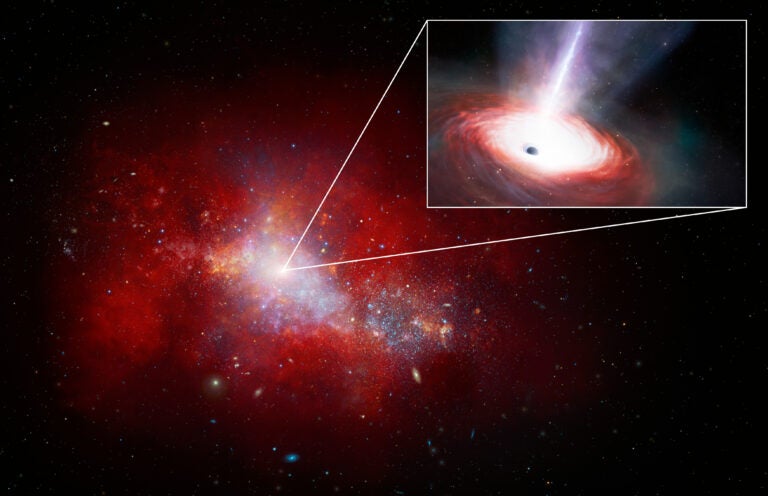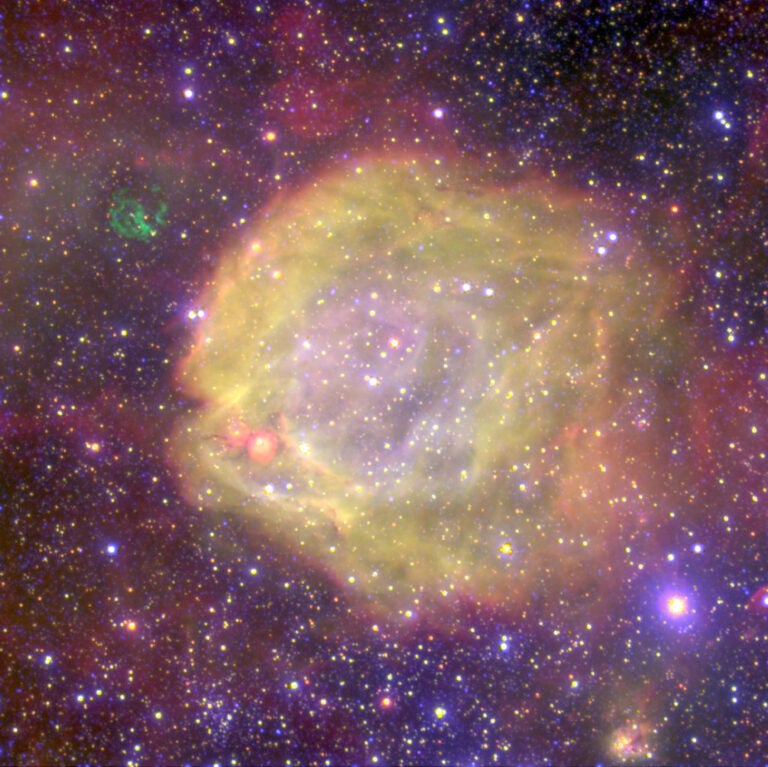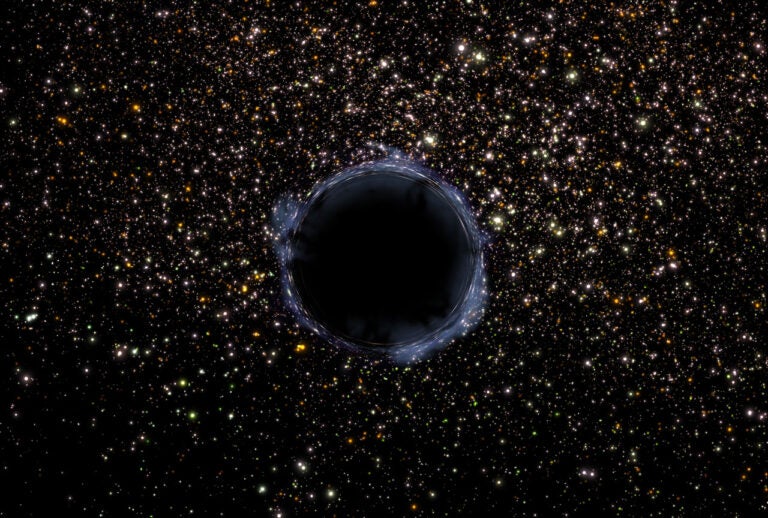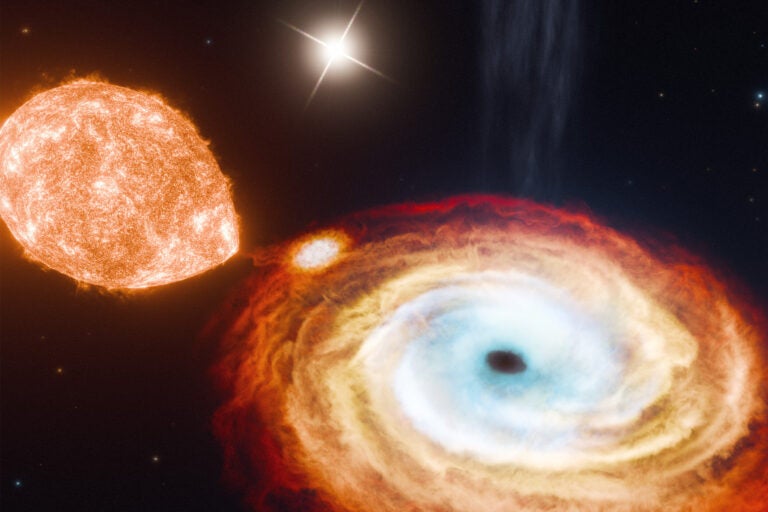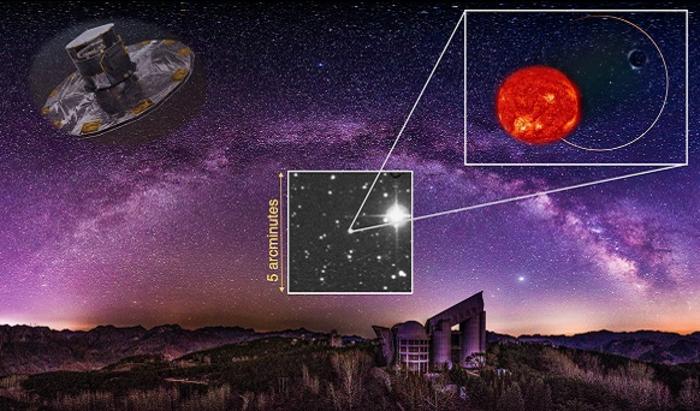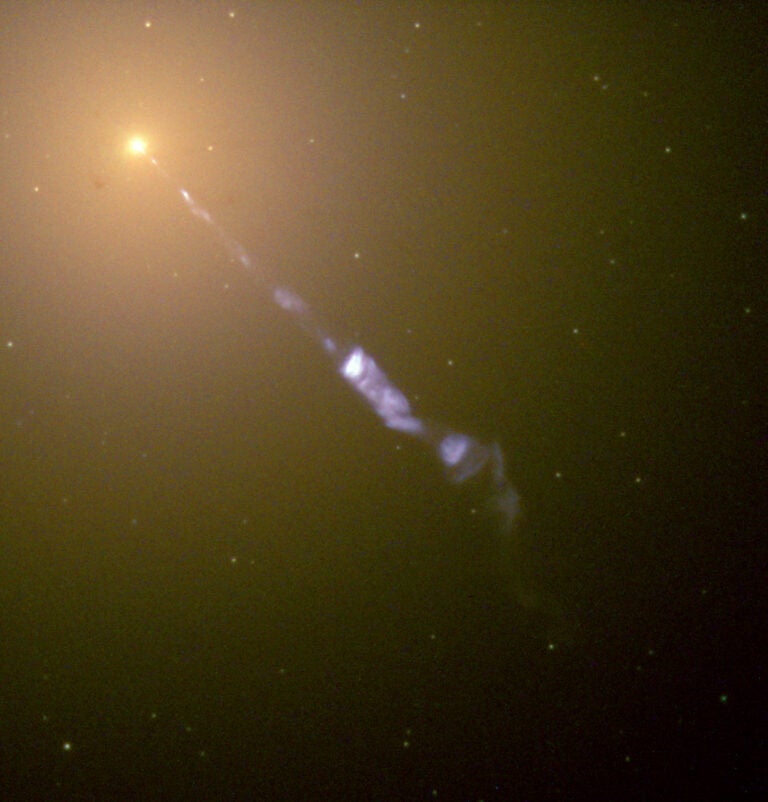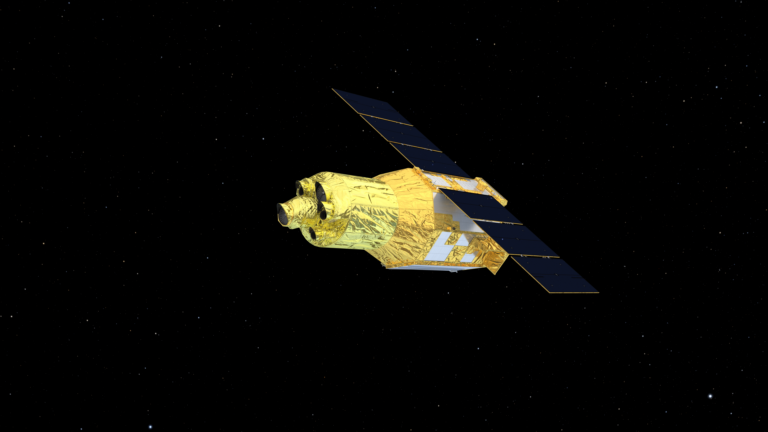Theoretical research suggests a black hole could never grow big enough to swallow a galaxy. This is because black holes limit their own growth through a dynamic feedback process. As the black hole consumes stars and gas, it releases radiation. At some point, the radiation’s outward pressure cuts off the black hole from its own food supply and growth ceases.
Most large galaxies seem to have so-called supermassive black holes at their centers, containing millions to billions of times the Sun’s mass. The galaxy M87, for example, harbors a black hole weighing some 3 billion solar masses.
Yet even supermassive black holes don’t have enough “pull” to consume a galaxy. Their strongest influence reaches only to around 10 light-years, whereas most galaxies extend at least 1,000 times that scale. — Eliot Quataert, Theoretical Astrophysics Center, University of California at Berkeley

